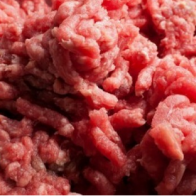
People are trying their hardest to lose the extra pounds before Spring ushers in swimsuit season. But many people are complaining that eating healthy is too expensive, so they opt to just expend more calories than they put in their bodies.
According to what they’re taught in school, doctors and nutritionists have favored the energy balance model. If you consume more calories than your body needs, you will gain extra weight in the form of fat stored throughout your body. The answer for the 35% of American adults who are obese, then, is to put down the Big Gulp and get off the couch.
Some researchers, however, are not convinced. They point to the fact that food intake and exercise patterns in industrialized nations have not changed dramatically, yet we continue to gain weight. Also, African Americans and Latinos have higher rates of obesity, even though the number of calories consumed varies little across racial and ethnic lines.
It may be that not all calories are created equal. Rats that drank high fructose corn syrup—the man-made sugar found in soft drinks, cereals and other processed foods—gained more weight than those that ate sugar water. This occurred even though both groups ate the same number of total calories.
Scientists that look beyond the energy balance model consider high fructose corn syrup an obesogen. This term refers to industrial chemicals and the non-caloric components of food that may contribute to weight gain. According to new research, these chemicals, which can be found in high numbers throughout our food supply, affect fat storage and metabolism in our bodies.
Top on the list of well-known obesogens is bisphenol-A (BPA), a chemical that is found in food products and packaging material, including baby bottles and sippy cups. It’s also in the urine of almost every American tested by the CDC. Like DDT in the 1960’s, you can’t avoid this stuff, no matter where you live. Some studies have shown that BPA can affect how fat regulation occurs in animals.
This debate is far from settled, but with America facing an increasingly harmful obesity epidemic, the battles will continue to be fought in laboratories and state houses. It’s likely that many factors affect how your body processes food—or stores energy as fat. Some things, however, have not changed. Eating well and exercising can still improve your health.







The book Four Hour Body discusses this in detail. Its really the high concentration of carbohydrates including sugar, wheat, and rice, that is the source of the increase in big bellys